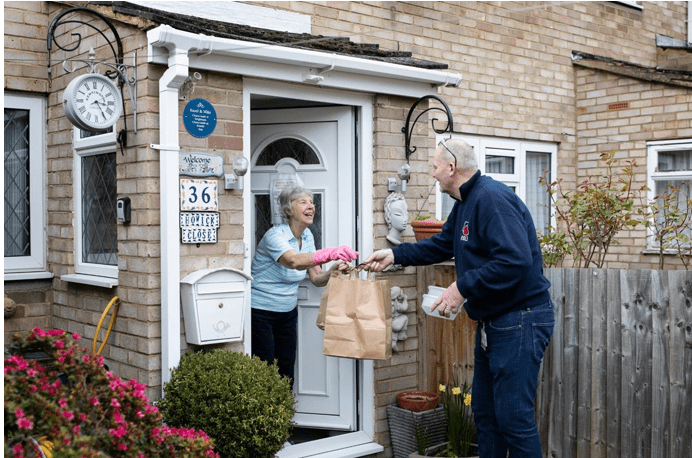The guest speaker’s talk discussed how mutual aid groups are formed and sustained during the Covid – 19 pandemic has highlighted the constructive and important role that digital media can play helping to transform the workings of our society and develop alternative and innovative ways of delivering community care. The key terms discussed by the speaker in her talk include digital infrastructure, care and mutual aid.
According to the speaker, infrastructure should be understood as follows:
“[digital infrastructure] should be understood in a broad sense. This include social norms, organizational practices and interpersonal relationships… digital infrastructure also relate to your social group and social ties…”
- Anastasia Kavada
In my opinion, what the speaker is saying here is that infrastructure is a combination of technical and social norms and practices and physical/technical infrastructure. This understanding of infrastructure is inspired by Star and Bowker’s (1997) social – technical understanding of infrastructure. According to Star and Bowker’s (1997), socio – technical systems incorporates the interplays between technology and social relationship in modern society. In the context of the Covid – 19 pandemic, this type of socio – technical infrastructure, which has manifested in the form of social media – based groups, has played an important in delivering aid to people in need in local communities.
Citing the argument of Tronto (1990), the speaker also provides her definition of care in terms of four different perspectives: caring about, caring for, care giving and care receiving. In the context of mutual aid in the time of the Covid – 19 pandemic, I am most intrigued by the concept of ‘caring for’ and ‘care giving’, which the speaker describes as follows:
“…caring for is assuming responsibility for the provision of care…care giving is the actual work of caring…”
- Anastasia Kavada
In usual circumstances, it is usually people’s family, friends and the government (through public health organizations and social services departments) that assume the ‘caring for and caregiving’ responsibilities (Nocon, 1994). During the Covid – 19 pandemic, however, government agencies including public health organizations and social services departments have been overwhelmed by the sheer volume of caring needs. This creates room for self – organized mutual aid groups to step in to take up ‘caring for and caregiving’ responsibilities. According to Lammes et al (2019), such mutual aid groups can considered as a part of a civically engaged society, where citizens are actively engaged in their own governance as well as care taking.
Featured visual image: community caregiving

According to the speaker, mutual aid groups can be defined as follows:
“Mutual aid is where a group of people organize to meet their own needs, outside of the formal frameworks of charities, NGOs and government…”
- Anastasia Kavada
More formally, Shantz (2013) defines mutual aid as the reciprocal exchange of services as well as resources with the aim of promoting mutual benefit. In the Covid – 19 pandemic, the emergence and organization of mutual aid groups have been facilitated by digital media as infrastructure, which provides a digital, contactless and safe venue for people to assume the responsibility of those in need in their communities (Whitebread, 2020). I think this is a positive step towards building a more coherent and constructive civic society.
References
Star, G. & Bowker, G. 1997. Social Science, Technical Systems and Co-operative Work: Beyond the Great Divide. 1st edition. Routledge.
Shantz, J. (2013). Commonist tendencies : Mutual aid beyond communism. Brooklyn, New York : punctum books
Nocon, A. (1994). Collaboration in community care in the 1990s (Health and community care in the 1990s). Sunderland: Business Education.
Lammes, Sybille, Raessens, Joost, De Lange, Michiel, Glas, René, & De Vries, Imar. (2019). The Playful Citizen : Civic Engagement in a Mediatized Culture. Amsterdam: Amsterdam University Press.
Whitebread, H. 2020. Small mutual aid groups were critical in Covid-19 response, says think tank. Civil Society. Online. Available at: https://www.civilsociety.co.uk/news/small-mutual-aid-groups-were-critical-in-covid-19-response-finds-report.html
